CS Summer of Fun 2025: Where Educator Curiosity Turned into Classroom Action
Posted on
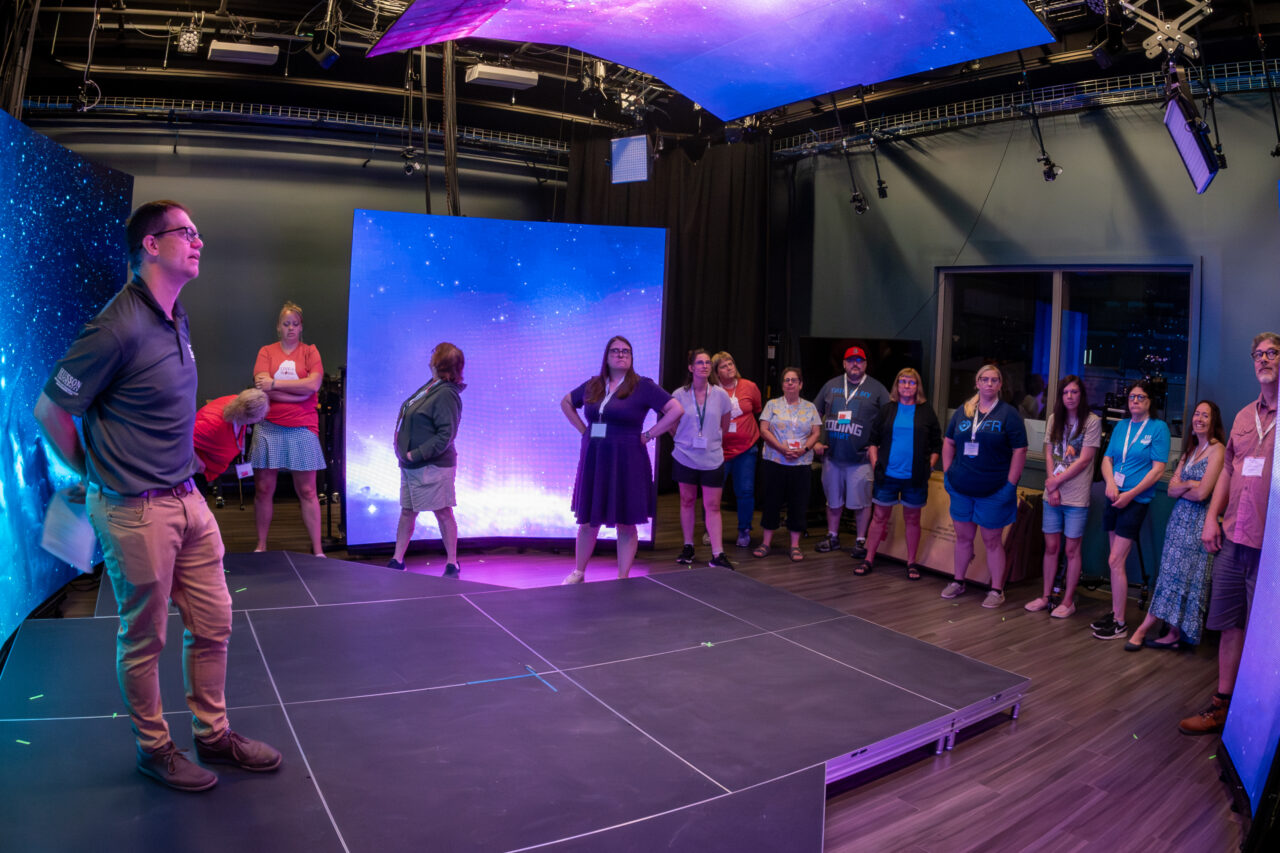
What do coding with playdough, tracking pH with micro:bits, and designing theater sets in 3D have in common?
They are all ways teachers brought computer science (CS) to life this summer, not in computer labs but in classrooms where storytelling, science, agriculture, and art intersect. From July 21 through 24, more than 150 educators gathered at Husson University in Bangor for CS Summer of Fun 2025, a professional development event designed to help educators integrate computer science into their existing K–12 curriculum.
CS Summer of Fun at a glance:
- 150-plus educators from across Maine and New Hampshire
- 115 schools represented
- 80 sessions offered across five tracks
- 26,000+ students to be impacted by the work of participants
Pathway Highlights
Integration in Action: Where CS Meets Every Subject
The Integration Pathway supported educators in bringing CS into the subjects and curriculum they already teach. Teachers developed lesson plans that blended coding with literacy, agriculture, math, music, and visual arts.
“Bringing smart greenhouses into the 6th grade curriculum will spark curiosity by blending STEM, coding, and agriculture, growing young minds while growing real plants.” – Stacy Labree, sixth grade teacher at Reeds Brook Middle School in Hampden, ME
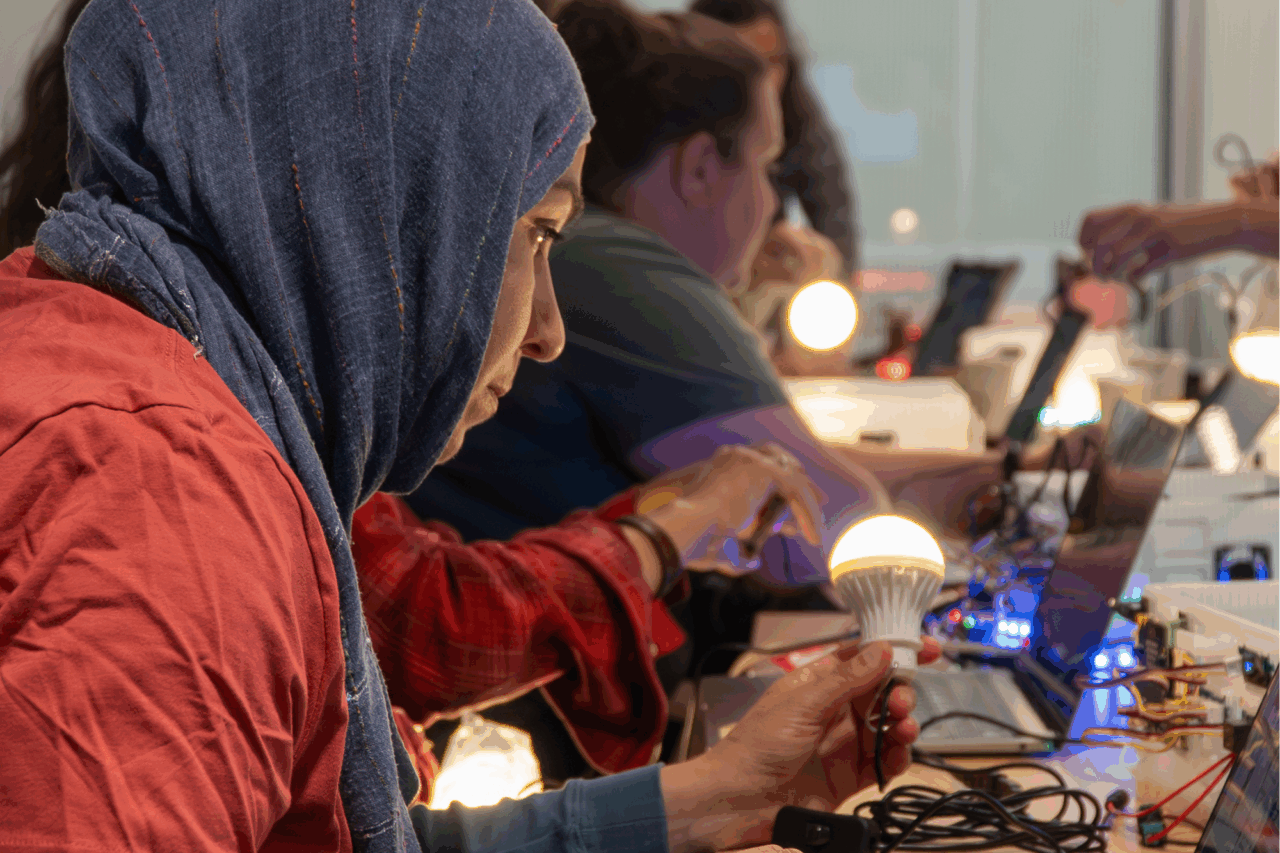
Hands-on CS: a participant wires LEDs and micro:bit sensors for a mini greenhouse that monitors soil conditions.
Everyday AI: Big Ideas for the Real World
Educators in the Everyday AI Pathway worked on strategies to make artificial intelligence approachable and meaningful for students. Participants explored sorting algorithms, machine learning activities, and real-world use cases of AI. Sessions focused on building critical thinking skills and helping students ask thoughtful questions about how AI influences their daily lives.
“I learned so much about artificial intelligence—how it works, how it’s used, and how long it’s actually been around. We explored sorting algorithms and how they help us organize data in powerful ways.” – Leeanna Conners, sixth grade science teacher at Ellsworth Elementary-Middle School in Ellsworth, Maine
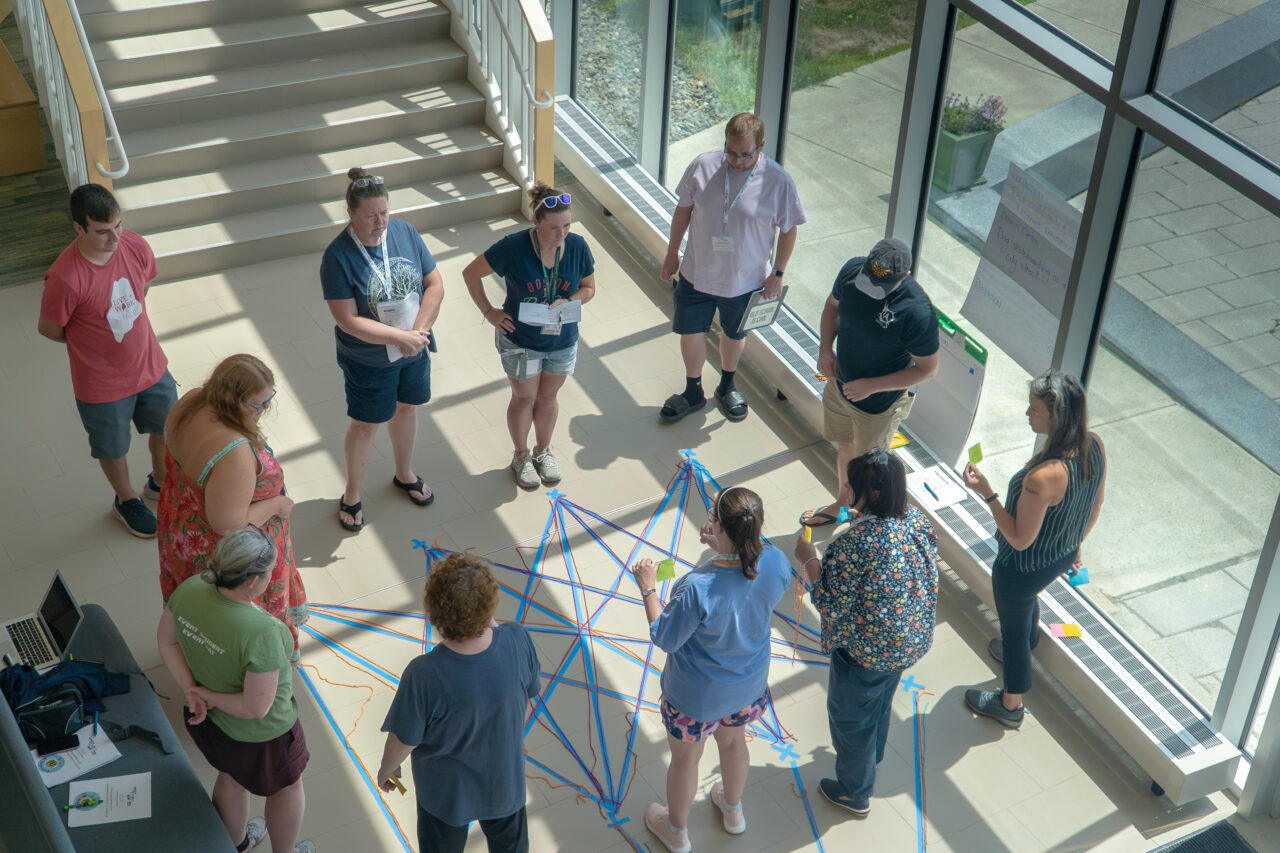
Participants built classroom-ready projects such as AI-powered games, ethical dilemma prompts, and student-designed data collection tools.
Leading the Way: Building CS Vision Across Schools
Administrators, instructional coaches, and education leaders joined the Leadership Pathway to explore scalable strategies for bringing CS to their schools and districts. Sessions focused on policy development, funding opportunities, instructional planning, and equity in access to CS learning. Leaders collaborated with peers to draft district-specific CS visions, map out implementation timelines, and identify potential community partnerships.
“The Developing AI Literacy (DAILy) Curriculum will make a huge difference for my students.” – Dori Jones, teacher at Bucksport Middle School in RSU 25, Bucksport, ME
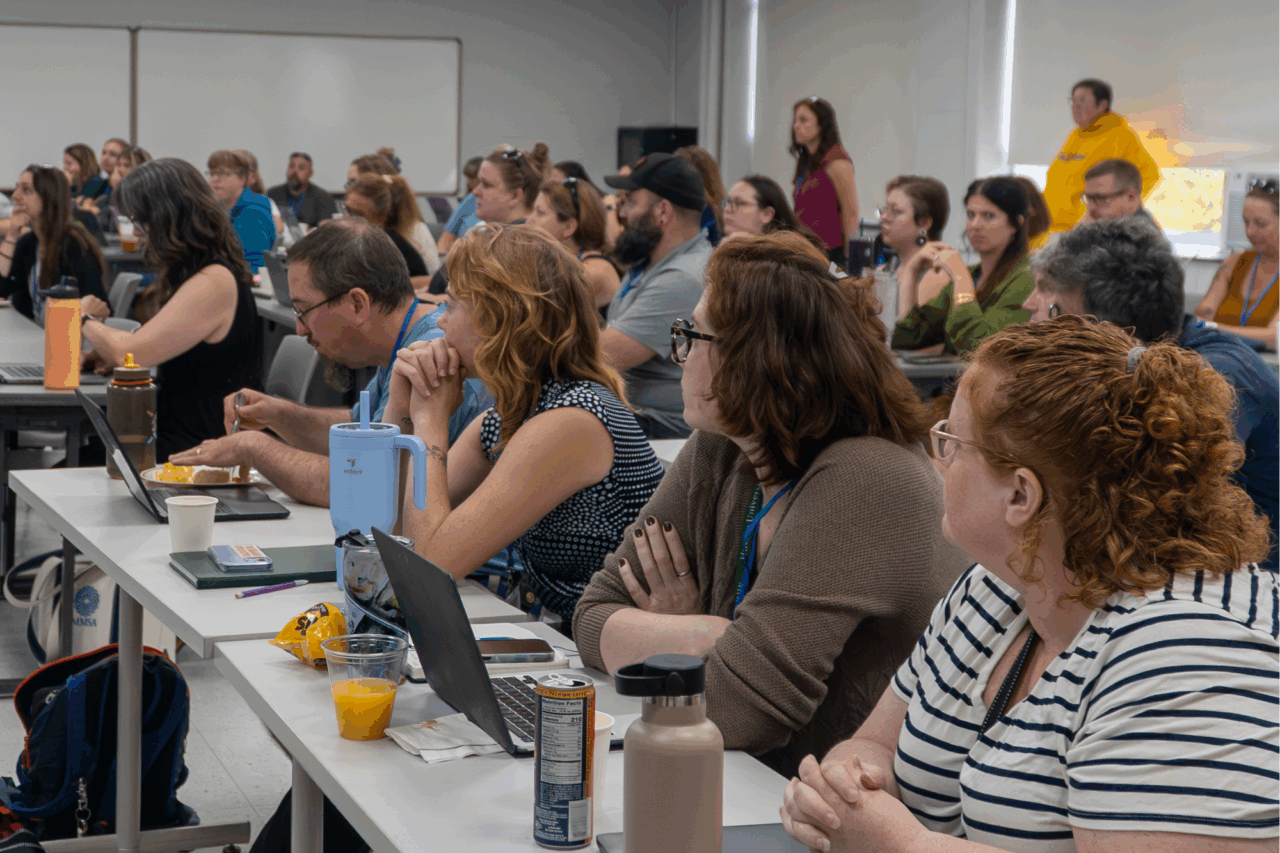
Several teams participated in SCRIPT planning sessions, setting goals for sustainable growth and workforce alignment.
Tools, Toys, and Twine: Creative Coding Takes Center Stage
Participants in the Code.org tracks received targeted support for CS Principles and CS A curriculum implementation. These sessions helped educators build confidence using structured, standards-aligned resources to introduce or expand CS offerings in their schools.
“I am so excited to start using Code.org modules in my class, hello cross-curricular activities!” – Kayla Kelley, a teacher at Eastport Elementary School, Eastport, ME
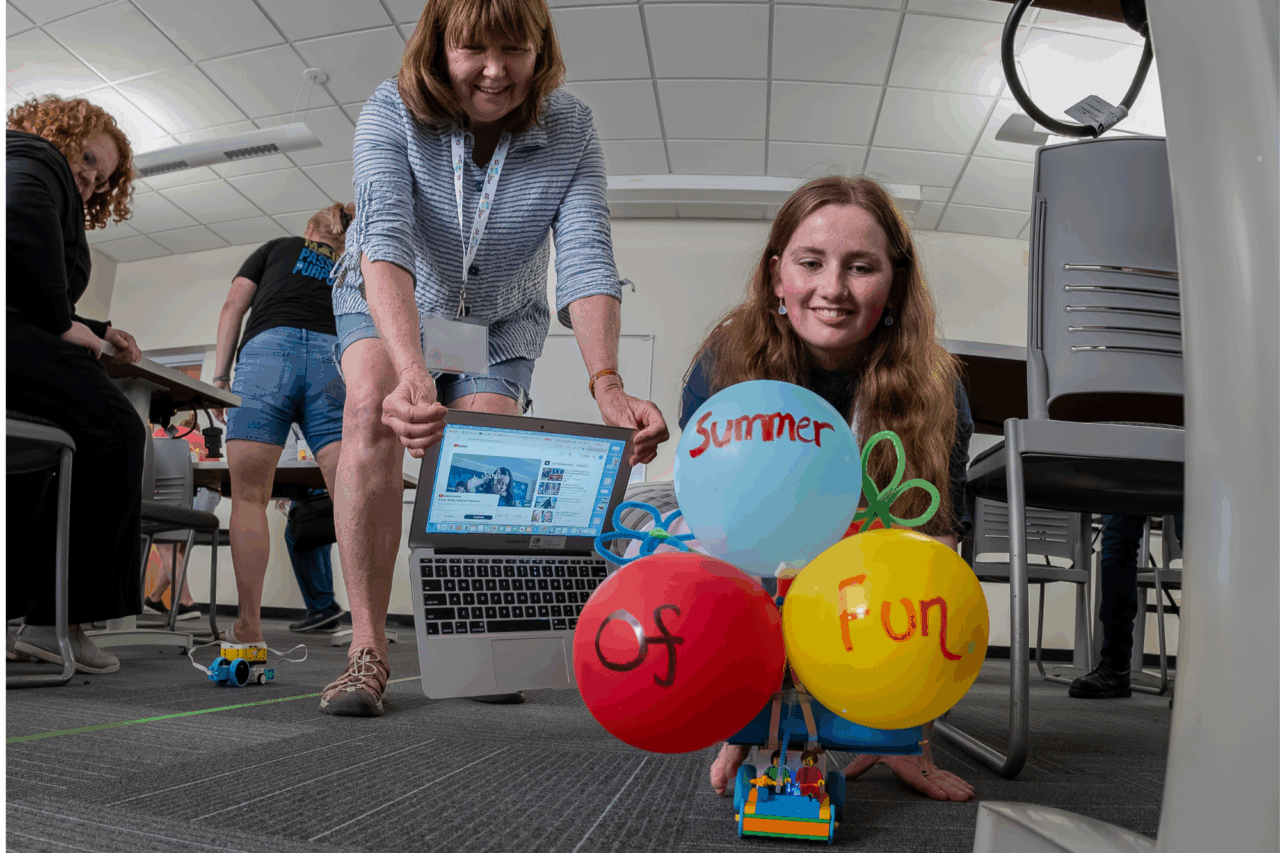
Creative sessions explored a wide variety of tech tools, including Tinkercad, Twine, Sphero, Makey Makey, and 3D modeling software.
Thank You to Our Partners and Sponsors
CS Summer of Fun 2025 was made possible due to the collaboration and support of event hosts Maine Mathematics and Science Alliance (MMSA) and Educate Maine, with support from Education Development Center (EDC), as part of the Workforce Ready 2030 (WFR) initiative.
This experience was free for Maine educators (with $100-per-day stipends) due to annual funding from the Harold Alfond Foundation(opens in a new tab) and from event sponsors including, Verizon(opens in a new tab), Code.org(opens in a new tab), Husson University(opens in a new tab), Tyler Technologies(opens in a new tab), and Systems Engineering(opens in a new tab).
Looking Ahead
The impact of CS Summer of Fun 2025 will ripple far beyond the week itself. Educators returned to their schools with new ideas, practical tools, and a renewed sense of purpose. Some will pilot new computer science modules, while others will launch schoolwide initiatives or support colleagues in bringing CS into their classrooms.
The story doesn’t end here. To learn more about MMSA’s ongoing work in computer science or find out how to get involved next year, visit mmsa.org or follow us on social media(opens in a new tab).